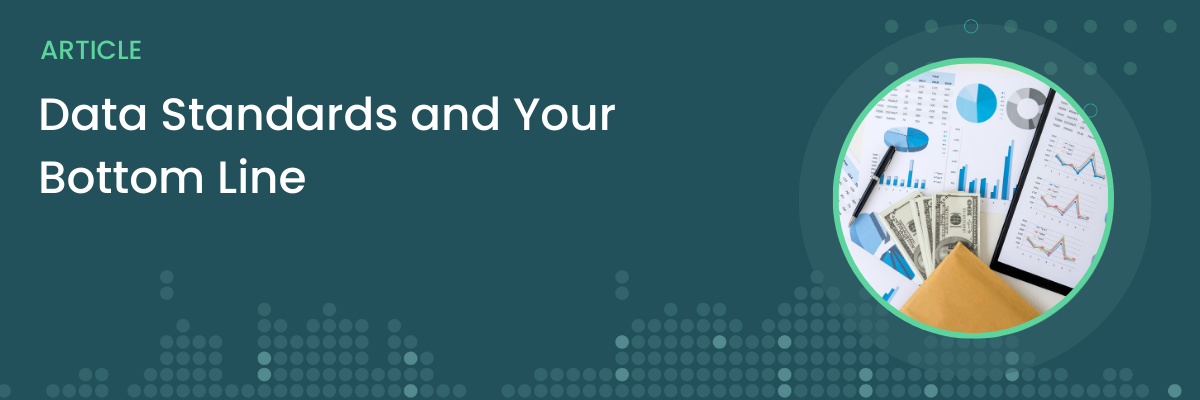Data Standards and Your Bottom Line

Study after study has made it clear that data standards can have a huge impact on a company’s bottom line.
Companies with strong data standards (and systems to manage these standards across different teams and technologies) have a significant advantage over their competitors.
How? Here are a few examples that show how being proactive around your data can be a boon for your business.
1. Improved Data Quality
According to a study by Experian, 92% of organizations believe that their data is inaccurate in some way. Implementing data standards will improve data quality by reducing errors, inconsistencies, and duplicates.
If your results are more trustworthy, you’ll have better decision-making, improved customer targeting, and more efficient operations.
2. Enhanced Customer Insights
Having data standards means you can consolidate data from lots of sources and create a unified customer view. Tying this data together lets you segment customers, meaning you can create more personalized marketing campaigns and improved customer experiences.
According to a report by McKinsey, companies that effectively use customer analytics are more likely to generate above-average profits.
3. Increased Marketing Effectiveness
Standardized data lets you accurately measure marketing performance and ROI. With consistent metrics, you can identify which marketing efforts are generating the best results and allocate resources more effectively.
According to a study by the Aberdeen Group, companies with strong data management practices achieved a 27% higher profit margin than their competitors.
4. Cost Savings
Implementing data standards reduces the time and effort required for data cleaning, integration, and analysis.
If the data is compliant with your taxonomy at the top, you won’t have to spend resources correcting data after a campaign. This saves tons of money on labor costs, and means you can reallocate your resources to higher-value activities.
According to a study by Gartner, poor data quality can result in significant costs, ranging from 10% to 25% of operating revenue.
5. Regulatory Compliance and Risk Mitigation
Data standards are crucial to ensuring compliance with data protection regulations. They also mitigate the risk of data breaches.
Failure to comply with regulations can lead to hefty fines, legal consequences, and damage to your reputation. Implementing data standards helps protect sensitive customer information and safeguards the company from potential legal risks.
Important note: the impact of data standards on a company’s bottom line can vary depending on the industry, size of the organization, and the specific data challenges they face. We recommend conducting a thorough assessment of your own organization to determine the potential financial impact.
To gather specific data and industry reports related to your company’s sector or region, we suggest:
- Consulting reputable market research firms or industry associations
- Conducting targeted searches on scholarly databases (such as Google Scholar or JSTOR) to access relevant studies and data-backed insights.
As always, if you’re ready to take the first step towards better data standards, you can find us here.



